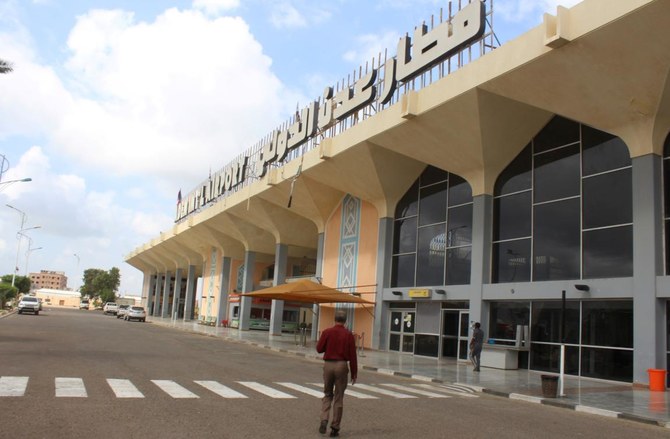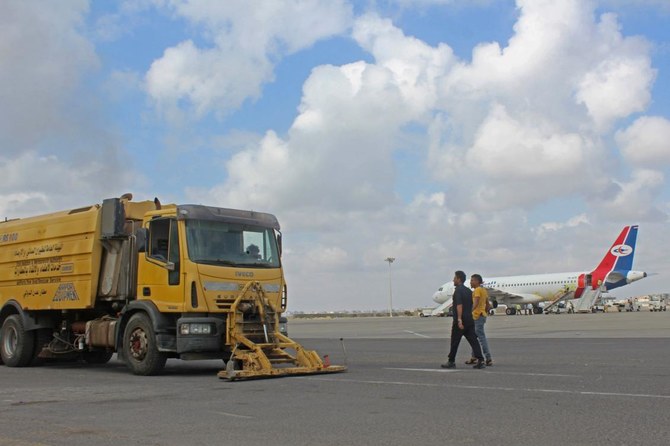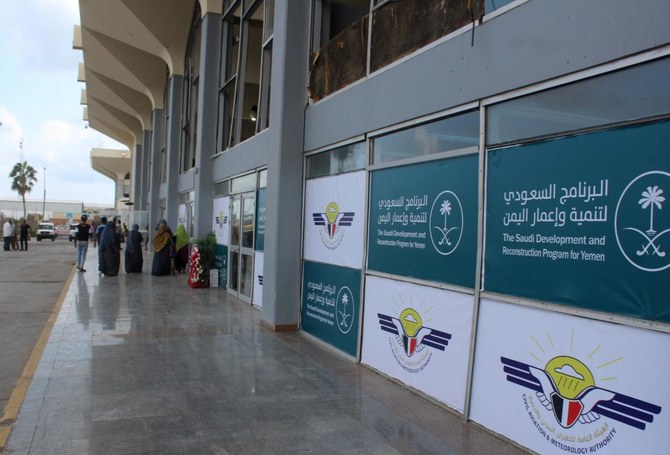AL-MUKALLA: Yemen’s Aden airport reopened on Sunday, days after a deadly Houthi missile attack killed more than 25 people and brought operations to a halt, officials and media said.
National carrier Yemenia said on Sunday that it was resuming flights to Aden. A plane coming from Khartoum landed at the airport, even as workers were retrieving debris and fixing the damage caused by the attack.
Aden Gov. Ahmed Hamid Lamlis said the airport would remain a “symbol of peace” and renewed calls for an international investigation into the airport attack, the official Saba news agency reported.
“We reiterate that Aden is strong and seeks peace,” he said at a ceremony to celebrate the airport’s reopening. “This is our message to the international community and we call (on) it to investigate this crime.”
The governor, the commander of the Arab coalition in Aden, Brig. Gen. Nayef Al-Otaibi, and senior government officials released white doves as peace signs.
Yemen’s new Prime Minister Maeen Abdul Malik Saeed and several government officials accused the Iran-backed Houthis and military experts from Iran of staging the airport attack. They called for an international investigation and branded the Houthi militia a terrorist group.
BACKGROUND
• Yemen’s new PM accused the Iran-backed Houthis and military experts from Iran of staging the airport attack.
• They called for an international investigation and branded the Houthi militia a terrorist group.
• Yemen’s Defense Ministry said on Saturday that at least 9,328 Houthi fighters were killed in 2020 in fighting with government forces or in Arab coalition airstrikes.
Yemen’s Defense Ministry said on Saturday that at least 9,328 Houthi fighters, including 688 officers with different military rankings, were killed in 2020 in fighting with government forces or in Arab coalition airstrikes.
The highest number of Houthi deaths was recorded in October and August when 1,220 and 700 rebels were killed.
The ministry also said that coalition warplanes and army troops had destroyed 27 arms and ammunition depots and 573 vehicles belonging to the Houthis. The army and allied tribesmen had shot down 104 explosive-laden drones fired by the militia in 12 months.
The war in Yemen began in late 2014, when the Houthis stormed Sanaa and expanded their military footprint across the country.
A coalition led by Saudi Arabia intervened in support of the internationally recognized President Abed Rabbo Mansour Hadi and managed to put an end to the Houthi military expansion.
It also helped government forces to take the offensive on the battlefields.




























